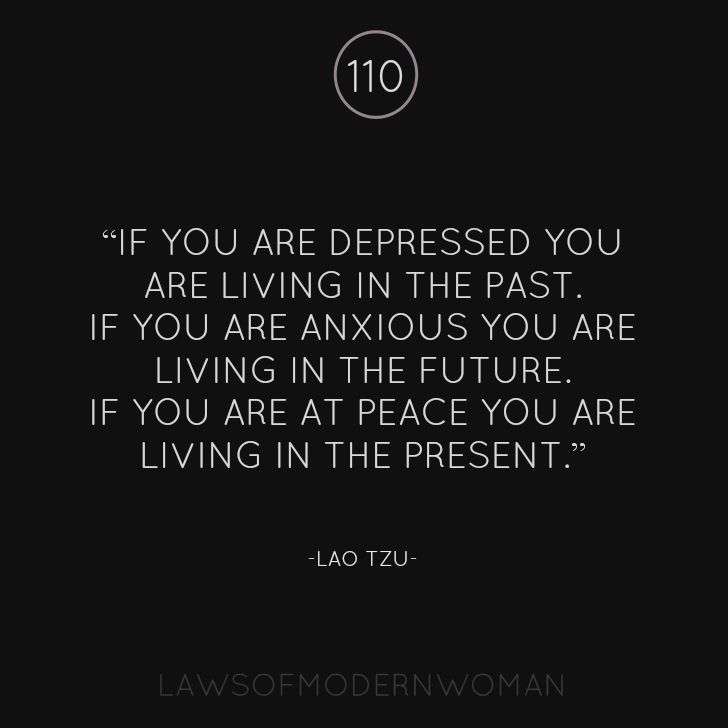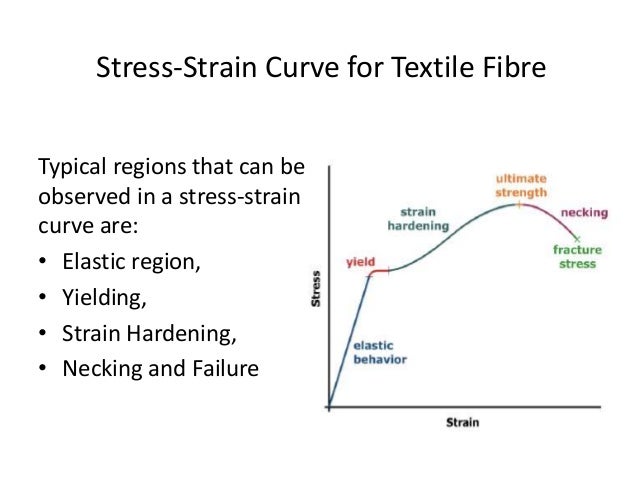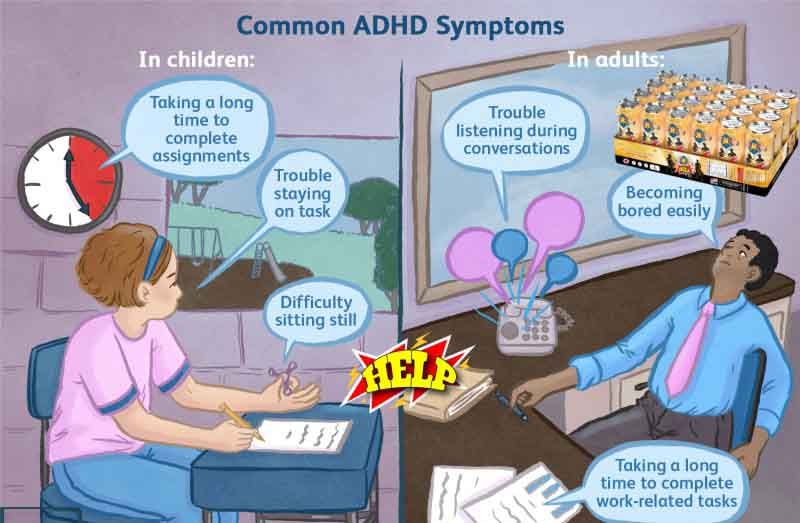Obsessed with being perfect
How to Overcome Toxic Perfectionism in a Highly Competitive World
By Kristi Tackett-Newburg, Ph.D., LIMHP, CPC on November 16, 2019
We’ve all experienced it at some point: the desire to be perfect.
After all, we’re living in a fiercely competitive society. One where productivity is glamorized and internet influencers dominateall in all, an excellent breeding ground for perfectionism.
Everywhere you look, there are pressures to be perfectto have the ideal body, a brilliant mind, the best grades, the coolest job, even a perfectly curated Instagram feed. We mistakenly believe that beingperfectwill ensure admiration, acceptance, and validation of our self-worth.
The truth is, there’s no such thing as perfectiononly the illusion of perfection. And chasing an illusion will get you nowhere fast.
As young children, we learn about expectations from the influential people in our livesparents, teachers, religious leaders, and even our peers. Expectations often get a bad rapthink unrealistic expectations from overly controlling or demanding parents. However,healthy expectationshelp shape our personal standardsthus, play a critical role in determining the quality of virtually every area of our lives.
If you dont set baseline standards for what youll accept in your life, youll find it easy to slip into behaviors and attitudes and a quality of life thats far below what you deserve. ~Tony Robbins
Personal standards are nothing more than a set of behaviors that are based on expectations you have of yourself in various situations. Psychology teaches us that we tend to get what we expecta phenomenon known as a self-fulfilling prophecy.A self-fulfilling prophecy is a belief or expectation that leads us to behave in ways (often subconsciously) that align with that belief, which, in turn, cause our expected outcome.
This line of thinking suggests that by having high standards, you are far more likely to achieve the kinds of things you want in life. If you have high personal standards, you will strive for excellence. If you have low personal standards, you will likely not put in the time, energy, or resources needed to achieve your goals.
But what if you expect nothing short of perfection?
Perfectionists are everywhere, often disguised as high achievers.
On the surface, it’s tough to tell the difference. High achievers and perfectionists both have extraordinarily high standards and a need to perform well. However, there is a glaring distinction between the two.
High achievers are driven by a relentless pursuit of excellence, while perfectionists are driven by arelentless pursuit of flawlessness.
Shame and vulnerability researcher, Bren Brownhighlights this important difference in her book, The Gifts of Imperfection:
The Dark Side of PerfectionismSomewhere along the way, we adopt this dangerous and debilitating belief system: I am what I accomplish and how well I accomplish it.Please. Perform. Perfect. Healthy striving is self-focusedHow can I improve? Perfectionism is other-focusedWhat will they think? (Brown, 2010, p.
84).
If you peer inside the mind of a perfectionist, you won’t find a healthy desire to achieve somethinga job, relationship, project, or a certain grade. Instead, you will find a bleak, obsessive desire to perfect the selfto be flawlessas a way to seek temporary emotional relief from dark, painful feelings. You could even argue that true perfectionists aren’t really trying to be perfect at all. They are avoiding not being good enoughand this fearmakes them hyper-critical of everything they do. To the perfectionist, Failure = Worthlessness.
High achievers, on the other hand, are driven by a strong need to achieve or accomplish something meaningful. Perhaps the biggest difference is that high achievers operate with considerable resiliency. Driven by a growth mindset, high achievers see failures astemporary setbacksthat they might overcome with greater effort. They welcome constructive criticism, viewing it as an opportunity for self-reflection and growth. For them, high personal standards are motivatingnot debilitating.
Clinical psychologists, Dr. Paul Hewitt and Dr. Gordon Flett, have spent over two decades studying perfectionism. Based on their research, they identify three distinct forms of perfectionism: self-oriented (a desire to be perfect), socially prescribed (a desire to live up to others’ expectations), and other-oriented (holding others to unrealistic standards).
The drive to be perfect in body, mind, and career may be taking a toll on young people’s mental health.A recent study published by the American Psychological Association found a clear upward trend for all three types of perfectionism. The study analyzed data from over 40,000 American, Canadian, and British college students. The results found that college students today are harder on themselves (self-oriented perfectionism), more demanding of others (other-oriented perfectionism), and report higher levels of social pressure to be perfect (socially prescribed perfectionism) than previous generations.
Perfectionism has been linked to a host of mental health problems including depression, anxiety, eating disorders, and suicidal ideation. Socially prescribed perfectionism, in particular, has been associated with an increased risk of both suicidal ideation and suicide attempts. Socially prescribed perfectionists operate under the perception that others expect them to be perfect and will be highly critical of them if they fail to meet their expectations. Because perfection is impossible, perfectionists believe they are constantly letting everybody else down. Given that recent generations of college students are reporting higher levels of socially prescribed perfectionisma 32% increase from previous generationsit is critical that we understand and recognize the early signs of perfectionism.
1. You have an all-or-nothing mindset.Dichotomous, or “All-or-Nothing” thinking refers to the tendency to evaluate one’s personal qualities in extreme, black-or-white categories. Common among perfectionists, this type of thinking leaves little room for error. Basically, if something isn’t perfect, then it’s perceived as a failure.
Challenge It:Learn how to reframe your thinking. Start by keeping a thought journal. Whenever you notice anegative thought, write it down in your journal. Pay attention to how that thought makes you feel. Try to find evidence that challenges your negative thought. Replace your original thought with an alternative or balanced thought. More of a tech person? Search for “CBT” or “Thought Diary” in your App store. There are several good free apps out there.
2. You have constant self-doubt.Perfectionists experience enormous self-doubtespecially when it comes to their own performance. Even if they receive outstanding feedback, they will worry they’ve tanked. Because a perfectionist’s sense of self-worth hinges on the expectations of others, they will obsessively ruminate over everything. For example, they will worry about whether they phrased their email the exact right way, whether their friends really had a good time last night, or whether their boss actually liked the report they submitted.
Challenge It:Practice self-compassion. Begin by noticing your own suffering, especially when it’s caused by self-judgment or self-criticism. Once you notice your suffering, don’t judge yourself for it. Remember, imperfection is part of our shared human experience. Our imperfections make us unique.
3. Your self-worth depends on what you accomplish and how others respond.Perfectionists base their self-worth on what they’ve been able to achieve. They strongly desire the approval of others and will regularly play the comparison game. For example, you believe that someone who attends an ivy league school is better than someone who attends a state college. Or you may view someone with 300 Instagram followers as less valuable than someone with two million followers. The list can go on and on.
Challenge It:Start treating yourself like you would a loved one. Make a list of all the things you love or appreciate about yourself that have nothing to do with achievement.Give yourself encouragement and celebrate your better moments. Review your list on a regular basis.
4. Fear of failure leads you to procrastinate or abandon projects.Perfectionists continuously worry that they won’t meet their own (or other people’s) standards. Expectations of negative consequences cause anticipatory anxiety, which then leads to avoidance. Perfectionism and procrastination go hand in hand. Postponing difficult tasksor abandoning them altogetherallows you to avoid failing.
The Challenge:Adopt a “done is better than perfect” mindset. Break projects down into small, manageable steps. Take frequent breaksespecially if you find yourself becoming overwhelmed.
5. You cannot accept and celebrate any successes.Even if you complete your goal, you still believe you could and should have done a better job. Perfectionists don’t acknowledge their wins to the extent of feeling joy or satisfied over a job well done. Instead, they find any and all flaws in how they executed the project. For the perfectionist, there is always something wrong, even when they achieve the outcome they wanted.
Challenge It:Fight the urge to minimize your accomplishments. Reflect on your success by practicinggratitude. Take time to nurture yourself by engaging in your favorite self-care practices.
6. You avoid taking on challenges that may expose your weaknesses.Perfectionists like to stick with what they know to avoid making mistakes. When faced with new challenges, they fear they won’t be smart enough or capable of learning something new. As a result, they avoid taking risks and end up stifling their creativityall to stay inside their own comfort zone.
Challenge It: Start with small risks that are not as anxiety-provoking. Over time, each small step will decrease your fear, increase your confidence, andstretch your comfort level. For bigger challenges, take the time to visualize the challengefrom beginning to end. Imagine any roadblocks and how you will overcome them.
7. You always put up a front, insisting everything is perfect.Many perfectionists have an outward need to appear perfect and will avoid any chance to reveal imperfectionsespecially in public situations. Driven by a deep-rooted fear of vulnerability, perfectionists hide their perceived imperfections as ameans of securing the approval of others.
Challenge It: Practice self-acceptance and self-love by engaging in regular mindfulness exercises. This will help you build self-awareness so you can more easily identify when you are experiencing unpleasant emotions like shame, vulnerability or fear. Remember that emotions are a normal and necessary part of the human experience. We all experience them.
For most perfectionists, the word “should” is a prominent fixture in their daily internal dialogue. Statements like, “I should be the best at everything I do” or “I shouldnt make mistakes” will leave you feeling anxious or depressed and often lead to avoidant behaviors.
Challenge It:Learn to separate feelings from facts. Just because something feels a certain way doesn’t mean that it’s a reality. Instead of telling yourself, “I shouldn’t be feeling/thinking _____,” take a step back and say, “I notice I’m feeling/thinking _____. I wonder why that’s happening now?”
9. You get defensive when receiving feedback.Perfectionists have excessively high standards and don’t allow for any mistakes. So when they receive constructive feedback, they have a tendency to engage in mental filteringhearing and focusing only on the “negative” feedback. Mental filtering can make you feel as though you are being verbally attacked, thus causing you to feel defensive.
Challenge It: Make an effort to maintain an open mind while receiving feedback. If you find yourself feeling defensive, assume positive intent from the person giving the feedback. If you are unsure of their intentions, ask questions to deconstruct the feedback so you understand where it’s coming from.
10. You frequently feel overwhelmed with stress.Perfectionism can be a massive contributor to your personal stress, which can wreak havoc on your body. Chronic stress has been linked to insomnia, fatigue, anxiety, depression and even cardiovascular disease.
Challenge It:Learn to let go and release the stress associated with perfectionism. Begin by increase your level of self-awareness using mindfulness exercises. Learning to be mindful will help you become more aware of your perfectionistic tendenciesallowing you to face your intrusive thoughts without reacting to them.
Are you obsessed with being perfect? – Chicago Tribune
Is failure not an option? Are you always trying to be perfect? According to therapist Ann Smith, author of "Overcoming Perfectionism: Finding the Key to Balance & Self-Acceptance," the need to be perfect can be both physically and emotionally damaging.
"The stigma of perfectionism isn't as bad as other compulsions such as smoking, gambling, or alcoholism, but it can cause someone to be physically ill, lead to depression, shame and in some cases even suicide," Smith said.
Advertisement
According to Smith, there are two types of perfectionism — the overt and the covert.
"The overt or the visible perfectionists are the ones who are very organized, put together and on time," she said. "Then there are the covert perfectionists, who may not look very put together, but their mental sense of themselves is very critical. Their self-talk is negative. 'I'm never enough. I can't do it right.' They compare themselves to others all the time. They will often have friendships with people who they perceive to be better than them and they try to live up to it, but they fall short. So it's perfectionist thinking rather than perfectionist behavior."
Advertisement
Smith said perfectionists are born with the tendency to want things to be in order, and that circumstances such as family trauma, addiction, marital troubles or poverty can magnify the compulsion.
"For children who are in these circumstances, they will often start to use order to comfort themselves," she said. "If they feel anxious, they will literally put things in order, line things up, make thing symmetrical. Then they will isolate and won't tell people that they are struggling or feeling lonely and exhausted."
Smith said a combination of awareness, balance and self-acceptance can help fight the need to be perfect.
Here are some of Smith's tips to overcome perfectionism:
Slow down.
"Do this right now," she said. "Walk slower, talk slower, be slower about accomplishing what's on your list. Act like there is no hurry to get there. Perfectionists are always thinking, 'After I get this done then I will breathe,' and they never get around to it because there's always something else to do."
Put people first.
"You could walk in your office and just rush to your desk and do your email. But if you could connect just a little bit to a person, and do this on and off all day, you will be better off. Focus on your relationships. Just say, 'Hi.' Then when you get home, touch somebody important to you. Check in with them. This will fill up your emotional bank account."
Advertisement
Downsize.
"We need to stop complicating things by bringing in people you don't really need to have in your life," she said. "This can be with things as well. If you are buying books that you never read and you don't get rid of the ones you did read. Things keep coming in but nothing is going out. Be more selective in every category."
Express your concerns.
"A perfectionist can't ask you to be perfect with them," she said. "If someone in your life is being compulsive about perfectionism, tell them, 'If this is how you need to be, then I'm not going to participate in it.' Tell them how it feels to be around them. Be honest. What makes people change is when they see their values are out of line with their perfectionism. That is why I see people making the change — when other people, especially their children — are being harmed by the behavior."
Love yourself.
"All of this pushing for approval is really about love. When you look at your child and you see the things that are unique to your child that are different from other children — his strengths and weaknesses and his cuteness and his way of thinking, even his appearance — you adore it all. That's his essence. We need to do that with ourselves. Find your essence or your temperament — and know that all those traits are unique. Everybody has different traits and some of them are easy to live with and some are not but you are who you are. You need to love all the pieces, because it's through the struggles that we discover our strengths."
Advertisement
Twitter: @jenweigel
Obsessed with success | 10/07/2022, InoSMI
InoSMI materials contain only assessments of foreign media and do not reflect the position of the editors InoSMI
An increasing number of people are losing their common sense, generating crazy ideas and believing in them, forgetting to take care of themselves and each other. A manic idea is spreading that is completely unrealistic. Nevertheless, everyone strives to realize it until they burn out, get sick, get depressed, destroy their relationships and their own lives.
Andris Veselovskis
I have noticed that more and more people are losing their common sense, generating crazy ideas and believing in them, forgetting to take care of themselves and each other. A manic idea is spreading and growing, which is completely unrealistic. Nevertheless, everyone strives to realize it until they burn out, fall ill, enter depression or popular vegetovascular dystonia, and destroy their relationships and their own lives.
Obsession with financial well-being and consumption
If you look at the advertisement, it seems that our ideal is a completely crazy or infantile person, because he is completely happy because he bought a mattress or the right pasta. Someone beams with happiness thanks to a quick loan and encourages everyone else to join this fairy tale. If we turn on common sense even a little, it is clear that neither quick loans nor pasta create happiness. There is no evidence that happiness increases in proportion to financial income. According to studies, a person is unhappy in poverty, but, reaching a certain level of income, the feeling of happiness no longer grows in proportion to wealth. New trends are also emerging - young people are no longer in a hurry to buy an apartment or save money.
Obsession with youth and slimness
It sounds rather pathetic that a woman at any age should look twenty years old, be slim, like a model. These are models of obsession—what everyone should be. If you have not been able to model yourself in the right way, suffering arises, because everyone wants to see you young and slim. Try to tell a fat woman that you like her fat! She will look at you as a pervert, not a very smart type, or, at best, as a friend who does not want to hurt her. It is clear that George Clooney would not have liked her so full, but it does not matter. Isn't this an obsession?
Manic obsession with happiness
Nowadays it is fashionable to trade happiness. Various lecturers offer short and effective courses on how to learn to be happy. In addition, it seems that the lecturers themselves and the audience believe that lasting happiness is possible, you just need to apply the right methodology. Isn't this an obsession? After all, everyone knows that in life no one feels happy at every moment. But if Facebook is already full of messengers of happiness and people who confirm the existence of lasting happiness, then perhaps the following technique, lecture, meditation, awareness, religion, psychotherapy ... will lead to the long-awaited effect.
Obsession with success
If you do well in school, then things will go well in life. If you can make a million, you are successful. If you can win the competition, you are successful. In addition, success, for example, good grades in school, is considered an indisputable measure of something very good. How good a school is is also judged by student grades. Unfortunately, the reality is different. The stronger the child believes in this rating system, the more trauma he gets after. It turns out that success in later life is determined by the ability to communicate, enterprise, creativity, elasticity.
An obsession for every taste. For example, doctors are obsessed with workaholism, helping people — they work while holding their legs. Businessmen are obsessed with profit, athletes are obsessed with achieving the highest result. There are infinitely many such examples.
Why does this bother me?
All the ideas described above are far from reality. Alas, it seems that people generally believe in these ideas and desperately strive to become more successful and happier. In pursuit of conformity to the ideal, a person completely loses himself and usually gets into big trouble. Good grades do not protect against loneliness. A businessman in pursuit of profit may lose his family. Many athletes, ending their careers, often become seriously ill and die quickly. The more a woman dreams of a fairytale prince, the more difficult it is for her to love a normal man.
Our information space is oversaturated with various maniacal ideas. If we cultivate them, it makes us more vulnerable. This way you can pave the way to despair, failure, depression, vegetovascular dystonia, because all these manic ideas make a person weaker in the long run. Completely different values help a person to adapt to a constantly changing world.
What are the causes that create and stimulate obsession?
External causes. Market economy. Capitalism. The market economy was originally envisaged to help a person to exchange goods, to live better. Gradually, like any system, the market economy began to exploit people - you have to buy more, earn more, you are my slave. People run to earn money, buy, forgetting about their many other needs. Before, he liked to draw and dance, it brought great satisfaction. Now only work, home, work, nothing else. Yes, and I don't want to. The economy is fed, but the man is gone. Milk rivers are promised to a person. That's where you need to run. If everyone is running, then so am I. Following the herd. This is a very strong biological program.
Internal causes. Imagined omnipotence. I can achieve more, more, more. I am the best. I am invulnerable. My possibilities have no limits. I know what is good and what is bad. I am the center of the world. My needs are the most important. Others must reckon with me. This is a very deep, unchanging biological program, but such egoistic feelings and interpretations have nothing to do with reality. There are millions of the same people around with their own unique "I", but the uniqueness of one person cannot be better, more correct, etc. Omnipotence has destructive turbulence. This can be compared to drunken driving, when a person crashes into a pole at full speed. Everyone gets old, no one stays forever young - bam! We all experience failure - wham! It doesn't work out as planned - bam! We are losing loved ones - bam! We are not the most important in the world - bam!
Hidden low value. She tirelessly whispers: you are nobody, no one likes you, you will be abandoned, you will not be noticed. This mechanism makes you succumb to imaginary omnipotence in order not to feel your complexes. And omnipotence feeds low value, because it is far-fetched.
Idealization. A person thinks that relationships are possible without pain, anger and quarrels. For a while it is possible, then everything falls apart, because in reality there are always negative emotions that, accumulating, sooner or later pull the ship to the bottom. The ideal teacher or boss is not perfect at all. A vivid example of idealization is the crisis of 2008. It seemed to people that everything would definitely go up. If everyone thinks so and takes loans, then, of course, I also participate. We usually come to ourselves after a painful fall. Idealization is also a very strong, unchanging biological program.
The inability to live with the loss. Under normal circumstances, we spend our entire lives learning to deal with loss. This program in us is in an inactive state. If the previous three programs work automatically and with insane power, this one needs to be carefully worked on for many years. But we can learn to deal with losses and setbacks. And then you can live in this world, accepting yourself as imperfect and the world as unfair.
All of these mechanisms work more or less consciously in each of us. The more powerful a person wants to be, the further he is from reality, the more he will fall and hurt himself.
How to get rid of obsession?
No man is free of his own nature. It is impossible to get rid of the desire to be the best. It is impossible to avoid losses. An ideal person or an ideal faith is impossible. But you can get along with your biological uncontrollable nature. One can constantly learn to adapt to a changing external reality.
Think with your own head, without following the ideas of obsession that dominate in society. I study what interests me. I study as much as I need. I develop my creativity. I listen to myself - what I like and dislike, what develops and destroys me. I can develop my competencies, abilities, skills.
Collaborate with other people. I am valuable now, like others. Everyone can have their own opinion, this is normal. We must not fight with others, but embody our ideas. In recent centuries, violence in the world has been declining. Violence is no longer in fashion. Collaboration and communication are increasingly helping a person to live in the modern world. It has been proven that the more a person knows how to form fairly good relationships, the happier he is.
Failures and mistakes are a normal part of life. You can live through them, get sick and move on. It is good to learn from mistakes and correct them. Losses can be lived. When we lose a loved one, we always experience pain. This is fine. To learn to live with losses, you need the presence of other people.
Relationships will always be pleasant and unpleasant. You can learn to cope with unpleasant and difficult things. No relationship will be perfect. I am not the best, I am not the smartest. I can make mistakes, misunderstand something. As well as others.
Nothing is perfect.
I can build my self-esteem. You need to find your way. There are many sweet temptations inside and outside. I really want to deceive myself. If something seems perfect, chances are it's self-deception. If something only seems bad, chances are it's an overly negative assessment.
Just such a strong love: healthy feelings or addiction?
Urgent need to be needed by another person. Addiction does not bring pleasure from the opportunity to be with someone together, help or support, but, on the contrary, causes suffering when there is no such opportunity.
Previously, in psychology, there was an opinion that a dependent relationship is when one person in a couple supports in one way or another the dependence of the other (from alcohol and illegal substances to gambling), mental illness, irresponsibility and other unhealthy patterns of behavior of the other partner. Now, when they say that someone is in a dependent or co-dependent relationship, they mean that a person is very afraid of losing a partner, overly relying on his support and approval. The components of such an addiction can be difficult to live with, but nevertheless it is not the same as “dependent personality disorder”, in which people feel completely helpless without the support of other people.
Advertising on RBC www.adv.rbc.ru
Most of us are in dependent relationships to one degree or another. We all rely on loved ones, we are waiting for support, we want to tell our partner how the day went, and so on. The difference between painful addiction is the feeling of one's own inferiority when separated from a partner. In this case, the relationship ceases to bring satisfaction and serve as a constant source of anxiety. Such feelings are a signal that the relationship needs to be worked on.
To deal with an addiction in a relationship, the first step is to identify the symptoms.
© Obsession, 2004
- Desire to please
You constantly think about what else to do to make your partner feel good, so that he sees what a wonderful person you are. Does he have some problem? You immediately undertake to solve it. You think that your partner appreciates you precisely because you are always there and will be able to resolve any of his difficulties, despite personal inconveniences and risks. You don't care about yourself and are willing to renounce anything to show you care. It sounds like a perfect romantic concept, but in practice, after all this, you feel empty or even exhausted. This is a natural reaction of the body, since, acting out of a desire to prove our “necessity”, we experience great stress. In a healthy relationship, there are other motives that allow you to act without such emotions (and often more effectively).
- Belief that if you make a mistake, you will be abandoned
You are constantly trying, working on yourself, trying to do everything perfectly. You believe that if you make a mistake, act stupidly, then your partner will definitely leave you, because he will not be able to stay with "such a person." You think that only you are responsible for the relationship and should try not to lose it.
- Difficulty making decisions on your own
If you ask yourself how you feel or what you want, it will be difficult for you to answer. You are often not sure what decision is better to make, whether to buy some thing or not, what is the best thing to do in a given situation, so you constantly ask your partner, check with his opinion. You want him to show you how to do it.
- Conflict avoidance
You'd better keep silent than complain. Why say something is wrong? After all, there will be a conflict, so you think it’s better to give in and not say what you want. It is difficult for you to express your feelings, experiences and dissatisfaction.
- Desire to be with a partner all the time
You want to be with your partner all the time, spend as much time with him as possible. You have already forgotten the last time you met with friends on your own or when you went somewhere. You do not rest from each other at all and almost do not spend time apart.
- Breakups cause undue pain
Parting with a partner is a serious grief for you. Just thinking about it makes you step over yourself and go against your principles. You are literally ready to do anything to save the relationship.
- Desire to control everything
Since the most important thing is not to lose relationships, everything can be used, including total control. You are driven by the desire to constantly know where the partner is, with whom he is, what he is doing, what he is talking about, what he is thinking about. You need to be aware of everything in order to be able to influence the situation.
- Negative
The biggest difficulty in dependent relationships is that most often they deny the real state of affairs, and the partner and the situation are idealized. “We don’t have any addiction, I just love him very much.” It is very difficult to admit that there is some heavy component in such an expensive relationship.
© Obsession, 2004
- Education
Our perception of ourselves is formed through the reflection of us by our parents. When a three-year-old girl spins in front of a mirror and hears: “You are so beautiful,” then she will know that she is beautiful. When she hears: “You are so kind, you helped the girl find the doll,” she will know that she is kind. Collecting such assessments of parents in our internal piggy bank, we create an image of ourselves. And if we did not hear positive comments from parents or, on the contrary, received a lot of negative ones, then we begin to urgently need to hear such assessments from the outside. It becomes necessary for us to constantly hear how good, valuable, important and so on we are in order to feel ourselves as such. Compliments are great, but it’s bad when it’s hard for us to feel good without them.
- Child injury
Some severe childhood traumas, an early break in relations with an important person, for example, the father left the family and stopped communicating with the child, could have influenced the formation of a tendency to dependency relationships.
- Trespassing
If the parents do not respect the personal boundaries of the child, then, as an adult, he may be prone to getting into a dependent relationship. When parents enter the room without asking, take things, get into the phone or personal diary with checks - this blurs the boundaries of the child, he gets used to this attitude and either tries to act in this way in adulthood, or expects the same from a partner.
© «Obsession», 2004
If there is a lot of passion, emotions, strong affection in a relationship and everything suits you, why can it be bad?
- Emotional exhaustion
Dependent relationships can lead to emotional exhaustion, as they involve great sacrifice, constant concessions and actions contrary to oneself. Not caring for yourself in favor of caring for others also leads to exhaustion.
- Not quite my life
If you think about others more than about yourself, keep silent about your needs and desires, do not pay attention to their realization, try all the time to be not quite yourself, but to correspond to the ideal image, then life becomes as if not quite your own.
- You can be used
Research shows that most cases of psychological or physical abuse by one partner against another occur precisely in dependent relationships.
© "Obsession", 2004
Such symptoms, of course, can appear not only in romantic relationships, but also in any other. The problem solving steps that we offer are suitable for working on relationships of any format.
- Start by identifying your strengths. Their understanding will give great support in the process of working on yourself and relationships. For example, people who try to please others often have a highly developed ability to understand others, their desires and experiences. This can be used to enrich communication with other people.
- Analyze your symptoms of addiction. Think about what you think are signs of a healthy relationship. What is important to you in such a relationship? How could moving into such a relationship enrich your life? Answering these questions will help you increase your motivation to work hard on yourself and relationships.
- Learn to give yourself positive feedback and support. It's very difficult. Try to celebrate your victories, even the smallest ones.
Praise yourself for them, even if it seems silly at first: constant repetition can help you become less dependent on other people's evaluations.
- Think about what you do for yourself. Write a list of ways you can take care of yourself, make yourself happy. Maybe you have long wanted to go somewhere or try some new activity? Please yourself. Remember what brings you pleasure, what you like to do. Make time for your wants and needs. Try to do at least one thing for yourself every day.
- Work on personal boundaries. Think about when you feel uncomfortable with your partner. When he raises his voice or speaks in a rude way, do you remain silent, but do you feel bad? So there must be a boundary here. How do you usually react to its violation? Think about what new rules you need to establish in order to feel better next time in such a situation. Do you want your partner to take a break before going into another room, or to apologize for being rude? Tell him about your thoughts.
- Psychotherapy is best suited for working with addictive relationships, as it helps to track what is in the blind spot and get out of denial of problems. Most people in addictive relationships don't realize that they can do things to increase the addiction. The psychologist helps clients try new behavioral strategies to turn the tide and improve the quality of the relationship.
- If alcohol, drugs, gambling and the like are involved in your relationship, then it is better to turn to special programs for working with addictions, for example, 12 steps. In difficult situations, it can be very important to see other people with similar problems in order to understand that you are not alone, to be inspired and to fight together.
In any case, working on dependent relationships first leads to an uncomfortable and difficult state, since it is very difficult to break such a familiar and comfortable order of things. But in the end, relief always comes, and life becomes better, since healthy relationships are a source of a sense of harmony, fulfillment and happiness.













